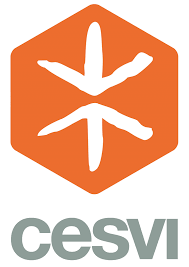1985
On the 18th of January, following a voluntary work experience in Nicaragua, Cesvi was established. In the founders’ minds development must be reached through involvement of the beneficiaries and the deployment of their organisations.
1987
Cesvi runs its first project on agricultural development in Uruguay.
1988
The ministry for foreign affairs recognizes Cesvi as a Non-Governmental Organisation. In 2012 Cesvi becomes a Participatory Foundation.
1990
Cesvi presents the accounts for the obligatory certification procedure for companies quoted on the stock market, developing a reporting system that is unique and revolutionary.
1994
Cesvi operates in Bosnia in the health sector and reopens some local factories to supply aid to the refugees. It is still active in Srebrenica, where it has opened a House of Smiles to foster living together between children and youths of different ethnic and religious backgrounds.
1994
Cesvi is the first western NGO to operate in North Korea, a country exhausted by famine. The integrated food supplements for children, produced in the Child Nutrition Centre set up in Ho Chi Minh City, are sent by sea from Vietnam.
1998
In the two years 1998/99 Cesvi continues to work in the Balkans, devastated by war: in Bosnia, Albania, Kosovo and Macedonia, side by side with all the races. It rebuilds houses, school, hospitals, orphanages, rest homes, water pipelines, electricity distribution, transport services and rubbish collection.
2000
The first non-profit in Italy, Cesvi wins its first Balance sheet Oscar. In 2011 it wins this prestigious award a second time.
2001
On the 9th of may Takunda is born, healthy, to a seropositive mother thanks to a treatment protocol introduced in a rural area of Zimbabwe. The Let’s Stop AIDs at Birth campaign is started.
2002
With Vodafone, Cesvi launches the supporting text message in Italy. In the same year it joins Alliance2015, a network of European NGOs united in the fight against poverty.
2004
Adding value to the experience gained in Romania, Cesvi sets up the House of Smiles in Peru, Zimbabwe, Brazil, India.
2007
Cesvi launches the Stop Child Labour campaign in partnership with Alliance2015. The objective is to remind everyone, citizens, governments, businesses and other social players, of their responsibilities towards the victims of child labour.
2010
Earthquake in Haiti, floods in Pakistan, war in Libya, famine in the horn of Africa: Cesvi is present in all the great emergencies in the world of 2010 – 2012. In March 2011 it is the first NGO to enter Libya with emergency food supplies.
2012
Cesvi operates for the first time in Italy for the population of Emilia, struck by the earthquake. The first action is for three companies working in strategic sectors in the territory. With the second project Cesvi launches a plan for support of children and parents, working with three social cooperatives in Modena.
2013
With the campaign Food Right Now Cesvi is recognised as an important voice on the subject of the right to food and food security. For the sixth year running Cesvi publishes the Italian edition of the Global Hunger Index (GHI), one of the most important reports on hunger at a global level.
2015
In its thirtieth anniversary year Cesvi takes part in EXPO Milan 2015 with the Alliance2015 partners and launches, for the first time in Italy, the international edition of the GHI. In the months of April and May it faces up to the challenge of the earthquake in Nepal.

